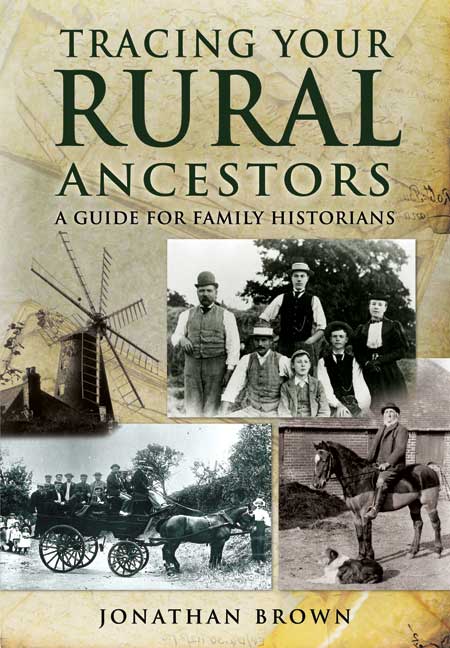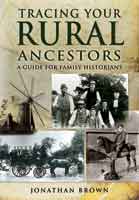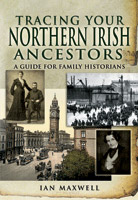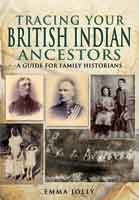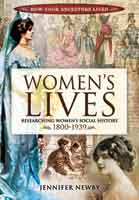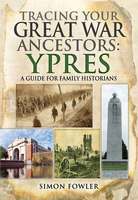Tracing Your Rural Ancestors (eBook)
A Guide For Family Historians
Imprint: Pen & Sword Family History
Series: Tracing Your Ancestors
File Size: 1.5 MB (.epub)
Pages: 162
Illustrations: 40
ISBN: 9781844686667
Published: 18th May 2011
| Other formats available | Price |
|---|---|
| Tracing Your Rural Ancestors Paperback Add to Basket | £14.99 |
Many family historians will come across direct links to ancestors who lived and worked in the countryside as farmers, labourers, landowners, village tradesmen and professionals – for most of us have rural ancestors. Yet despite the burgeoning interest in genealogy, these people have rarely been written about with the family historian in mind. No previous book has provided a guide to the documents and records, from medieval times to the twentieth century, that researchers can use to find out about their rural ancestors and the world in which they lived. That is why this accessible and informative introduction by rural historian Jonathan Brown is so important.
He describes the make-up of country and village society - the farmers, large and small, the farm-workers, the landowners and estate-owners, and the local business people, the tradesmen and merchants. At the same time he identifies and discusses the relevant national and local records, indicates where they can be found, and offers essential advice on how this information can be used to piece together the lives of distant and not so distant relatives.
Tracing Your Rural Ancestors is essential reading for anyone who is looking for an insight into the history of rural life, work and society.
“This accessible and informative book by a rural historian brings together details of the range of records and documents.”
B&A FJS Journal No. 153
“A comprehensive picture of rural life over the centuries.”
“This accessible and informative book by a rural historian brings together details of the range of records and documents.”
B&A FJS Journal No. 153 September 2013
“A comprehensive picture of rural life over the centuries.”
Accessible and informative book. A comprehensive picture of rural life over the centuries.
B&A FHS Journal
Accessible and informative book. A comprehensive picture of rural life over the centuries.
B&A FHS Journal
Based mainly on nineteenth-century rural life, setting the rural craftsmen, farm labourers, farmers and landlords in context and discussing ‘some records and sources’ and where to find them.
Local Historian Magazine
In 1851 half the population were in the countryside, so most people will have rural ancestors. Jonathan brown, honorary fellow of hthe Museum of English Rural Life, has compiled this readable and informative guide for family historians, in which he explains the structure of rural society nd its people – the migant workers, the farm labourers, the farmers, the village tradesman, the professional classes and the landowners – to discover who they were, how they lived, what records they might have left, and how to locate and decipher these historical resources.
Countryman, March 2012
Rural ancestry is a large, many-faceted topic. This book is a goof introduction to the subject socially and genealogically, pointing the reader in the direction of where to find the records and more advanced reading.
FGS Forum, Winter 2011
…first book to provided a guide to the documents and records, from medieval times to the twentieth century, that researchers can use to find out about their rural ancestors and the world in which they lived. This accessible and informative introduction describes the make-up of country and village society – the farmers, large and small, the farm-workers, the landowners and estate owners, and the local business people, the tradesmen and merchants. At the dame time it identifies and discusses the relevant national and local records.
Bradway Bugle
The final chapter is an excellent guide to where to find records and sources, church records, court records, copyhold records, diaries which may be found in archives of farms, diocesan records, trade directories and lots more. Even if you are not tracing your family history the contrasting examples of rural life in the past is interesting reading.
Sussex Family Historian
Tracing your Rural Ancestors is essential reading for anyone who is looking for an insight into the history of rural life, work and society
Kent Family History Society Journal, Dec 2011
“ This is an extremely useful handbook for genealogists with rural ancestors – which is most of us – with content providing a balanced mix of family, social and local history… As a resource for family historians, the most practical sections are located in the sources section at the end of each chapter, pointing to some lesser-used records and explaining why hey may be particular useful. The later chapters on record sources and where to find them are also records contain specific information concerning rural inhabitants. Finally, there is also an excellent bibliography and a useful, but somewhat general website section.
Who Do You Think You Are Magazine, September 2011
This volume is well worth investing in if you have any ag labs in your own tree. It could potentially open up exciting new research avenues for even experienced family historians
Family History Monthly, September 2011
Most of us have Ag.Labs and small village traders in our ancestry and apart from finding records of their baptism, marriage, baptism of their children and their burial it is difficult to find out more about them. Jonathan Brown gives an interestingly written overview of the make-up of rural society so that we can place our ancestors in their context. This is a book of social history particularly slanted for family historians. It is full of fascinating information on every aspect of rural society and also suggests sources where specific details might be found. A very good book to have on your shelves for background material.
West Middlesex Family History Society September 2011
Most of us have rural ancestors in our family trees. In 1851 half of the population of England and Wales were still countryside-dwellers; the ubiquious 'ag lab' of the census returns who lived and worked in the country, the farmers, cattle drivers, village traders and businessmen. But what were their day-to-day lives like, and how were they recorded? In this new title, Dr Jonathan Brown, an honorary fellow of the Museum of English Rural Life in Reading, paints a useful picture of the constitution of past rural society and talks us through the relevant national and local genealogical sources for researching countryside forebears.
Family Tree, August 2011
The comprehensive range of topics include rural migration, labourers (from hiring fairs to early trade unions), farmers, yeomen and peasants, aristocracy and gentry and old trades, such as blacksmiths, butcher and bakers. A wide variety of sources are suggested for helping you to flesh out your family history, from the more obvious census returns and BMD records to the lesser-known terriers and tithes. There is a helpful 'getting started' guide too along with an explanation of the different institutions, from The National Archives to local history societies, which may aid you in your quest. This is an enjoyable as well as a practical read that should help you to unearth your family;s rural roots, or at least throw some light upon their lives.
As one pushes back through time, it's common to come across the phrase 'Ag Lab', and it can be hard to know where to turn next. Astonishingly, this book is the first of its kind of specifically devoted to tracing rural ancestry - and we warmly welcome it.
Your Family Tree, August 2011
Its author, Dr Jonathan Brown, is a leading expert in rural social history with various academic works to his name, and is an honorary fellow of the Museum of English Rural Life in Reading. That, incidentally, is somewhere well worth visiting if you want to build up a clearer picture of what rural ancestor's lives were like. In the resources section at the back of the book, Brown includes a list of similar museums around Britain if Reading is too far for you to go.
Everyone from the butcher, baker and candlestick maker to lords and ladies, gypsies and recipients of Poor Law support is given a mention here, and the book forms a compact and excellent guidebook to rural life. With records strongest from the 18th and 19th centuries, these eras often provide the focus, but of course some aspects of rural life and remained steady for many centuries , and indeed land and parish records can frequently stretch back to medieval times.
About Jonathan Brown
After research at the University of Manchester on the rural history of Lincolnshire, Jonathan Brown has worked in a number of capacities for many years at the Museum of English Rural Life, where he is now honorary fellow. He has written widely on rural history, with books including The Rural World of Eric Guy, Farming in Lincolnshire 1850-1945 and Steam on the Farm.







